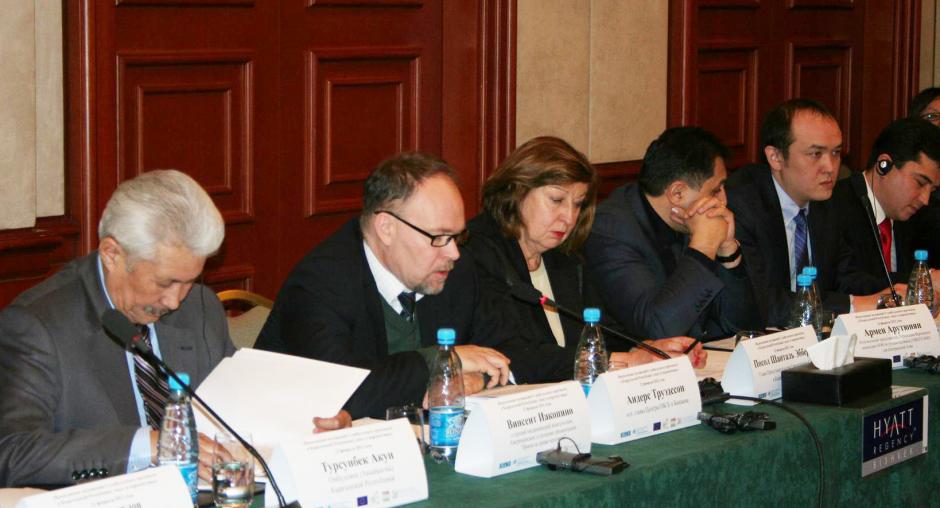OSCE facilitates discussion on prevention of torture in Kyrgyzstan

BISHKEK, 22 February 2012 – The implementation of the Istanbul Protocol standards for the effective investigation and documentation of torture and ill treatment in Kyrgyzstan was the focus of a roundtable discussion organized today by the OSCE Centre in Bishkek in co-operation with the UN OHCHR Regional Office for Central Asia, the Soros Foundation and the US-based NGO Physicians for Human Rights.
Government officials from line ministries, the Prosecutor General, the Supreme Court, the Presidential administration, members of Parliament and representatives of civil society and international organizations discussed salient challenges, including how to prevent torture through effective investigation and documentation.
Anders Troedsson, the Acting Head of the OSCE Centre in Bishkek, said: “Today’s roundtable is an important occasion to continue our dialogue on national efforts to prevent torture. While the adoption of a National Preventive Mechanism under the UN Optional Protocol to the Convention against Torture is pending in the Parliament, the OSCE Centre in Bishkek has promoted closer co-operation between civil society and the office of the Ombudsman, a co-operation that resulted in a joint report rich in recommendations that are now awaiting implementation. In 2012, the Centre plans to expand this partnership to a number of crucial actors within the government with a view to working out concrete efforts in the fight against torture.”
Ombudsman Tursunbek Akun said: “The establishment of a National Preventive Mechanism in Kyrgyzstan is a very urgent matter. Only when all places of detention and closed institutions will be open to independent monitoring we will be in a position to talk about effective prevention of torture. We hope that the Parliament will soon adopt the law establishing the National Preventive Mechanism, also considering that it was discussed in a number of public hearings and that it already received excellent feedback from national and international experts”.
Vincent Iacopino, Senior Medical Adviser at Physicians for Human Rights, said: “Physicians for Human Rights is honored to participate in this important opportunity to transform Kyrgyzstan’s commitment of ‘zero tolerance’ for torture into action. Our collective efforts to implement Istanbul Protocol standards for the effective investigation and documentation of torture and ill treatment are essential for torture prevention, accountability and redress and represent a critical step in respecting the rule of law in Kyrgyzstan”.
Co-awarded the Nobel Peace Prize in 1997, Physicians for Human Rights led the drafting of the Istanbul Protocol which was officially endorsed by the UN in 1999. The Protocol is a set of international guidelines for the documentation of torture and its consequences.
